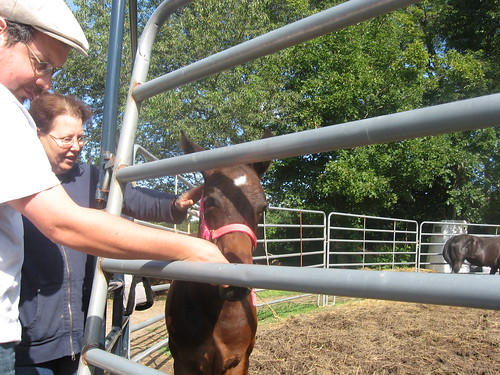|
|
🦋 Oh, that's what that means! ...What does that mean?...
Spent this weekend working on a translation of Fernando Iwasaki's A Troya, Helena, and I think I came up with a pretty convincing rendering by this morning's (submitted) draft. A couple of fun bits from researching meanings in this short story:
- "Helena habÃa resistido demasiado, más de lo que se
le podÃa pedir a una chica que se casa a los veinte años con un
huevón de oficio pero sin beneficio."
I spent a while trying to figure out "de oficio pero sin beneficio" -- my first guess was that the narrator was referring to himself as a jerk "with a job but with no money," which would sort of fit the story but not particularly add much to it... Mariana laughed when she saw the phrase and said he is calling himself un "heuvón de oficio", i.e. an asshole by trade, and then bringing in the phrase "sin oficio ni beneficio" to say he was not doing well even in that chosen trade.
- "Parissi se esmeraba en prolongar el último
orgasmo de Helena hasta el lÃmite de las gunfias."
It took me a long time to get anywhere with this last word, and I'm still not quite comfortable with it. It turns out to be a word from Cortázar's invented jargon glÃglico, from Hopscotch. I've taken what might be the coward's way out and rendered it as gunphies, which is the word Rabassa uses in his tranlation, out of a desire to keep the Hopscotch reference intact. (And yes, Cortázar is another big hole in my literacy...)Daniel González Dueñas says, in his post on glÃglico (which is based on the Porteño dialect Lunfardo), that ‘gunfia’ is an apheresis of ‘esgunfiola’ and can be used to mean ‘boredom’ or ‘disgust’; that “hasta el lÃmite de las gunfiasâ€
is something like (if I'm reading right) "as far as propriety will allow." Which sounds, well, a little strange in the context in which it occurs here; but the narrator is a very strange dude to be sure. Maybe "for as long as she would let him." - "Parissi aferró enhiesto la odalisca
cintura que se apretaba contra su cuerpo y ordenó con voz ronca y
temblorosa: 'A Troya, Helena. Ahora vamos a Troya'."
My first reaction was, Why would Parissi say something like that, in that situation? It did not seem to make any sense and kept me from really processing the last two or three paragraphs. It took several rereads of this and the following sentences before I got that Parissi was talking about anal sex; and even after I hit on that interpretation, although it made a lot of things about the closing paragraphs make sense which had not, I was reluctant to go with it. Then I found Francisca Noguerol Jiménez' paper "Vitality, Sensuality, Erudition, Ingenuity: the narratives of Fernando Iwasaki" in which she comments that "The expression ‘To Troy, Helen’ is a clear reference to ‘Greek’ love ‘from behind.’"
posted evening of Sunday, March 11th, 2012
➳ More posts about Translation
➳ More posts about Writing Projects
➳ More posts about Projects
| |
|
Drop me a line! or, sign my Guestbook.
•
Check out Ellen's writing at Patch.com.
| |

